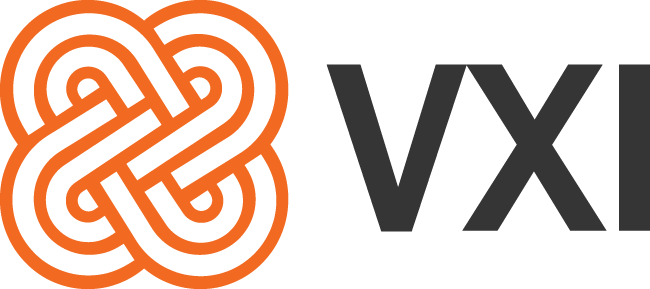
Webinar: Tuesday, April 29th @1pm
Winning at Retention-
Proven Strategies to Reduce Cancellations, Winback Customers & Drive Lifetime Value
Sign up Now

I’ve come to conclude that sales is the greatest profession on the planet. No other field gives such leeway to grab ahold of your own destiny and be in the driver’s seat. I think most of us just stumble into the sales profession; that’s pretty much what happened to me. Though I never expected to make sales a career, that’s what I’ve done at a company in Toronto.
Sales is full of neurodiverse people, and I’m proud to say that I’m one of them.
I was diagnosed with attention deficit hyperactivity disorder (ADHD) as an adult. Until my diagnosis, I simply suspected that my brain operated at different speeds and capacities than most people. I also used to be a competitive athlete. I played baseball growing up, was on a state championship team, and was highly successful until I suffered a knee injury that halted my career. That competitive instinct plays a big role in my sales success today. In addition, my thought process tends to be a couple of steps ahead of what’s actually happening and can be rather scattered, among other things.
Neurodiversity is a relatively new concept, coined by Australian sociologist Judy Singer in the 1990s. It regards people with variations in brain function and behavioral traits – autism, Asperger’s, ADHD, dyslexia, dyspraxia, dyscalculia, dysgraphia, and Tourette syndrome – not as disabled or objects of stigma but as reflecting natural variation in the human population.
Experts believe that about 20% of the U.S. population is neurodivergent. That’s roughly 66 million people – not a trivial number.
More and more companies are recognizing that neurodiversity in hiring needs to be part of workplace Diversity, Equity, and Inclusion (DEI) initiatives. For example, SAP and Microsoft have expanded efforts to hire more neuro-atypical employees.
But I think we have a long way to go.
I am a neurodivergent business professional who happens to be a sales professional. I’m very good at what I do, and I don’t let anything get in the way of doing my work successfully. Neurodiverse professionals bring different perspectives and strengths to the table from neuro-typical employees and often challenge the status quo. It is this diversity of thought that gives an organization strength in special ways.
However, I believe there are many others like me who don’t get the support they need to do their jobs optimally.
This is most likely because the corporate world still struggles with how to integrate neurodiverse professionals into their teams. Furthermore, in workplaces that rely so heavily these days on workplace and collaboration software, the companies that make those tools are only beginning to adjust them to the neurodiverse people among us.
For example, a great deal of my success as a sales professional revolves around pipeline management, and customer relationship management (CRM) tools are all about pipeline management. These are toolsets that almost all sales professionals on the planet have used, and that neurodiverse individuals have found challenging to master.
I’ve struggled to leverage my CRM tool for success. The app is incredibly dense in clicks and information. For someone with ADHD, this simply doesn’t work. In fact, it made me less efficient and made me feel incredibly burdened with administrative tasks. It gave me anxiety, it made me uncomfortable, it confused me. I struggled. It didn’t set me up for success.
This was unfamiliar territory for me. I had been a very high-achieving student who also excelled in athletics. I wasn’t used to this kind of frustration. I was someone who had been taught at a very young age that educational excellence is incredibly important. I remember in the ninth grade, I used to have spreadsheets that tracked how many hours I’d study for an exam. I was that serious.
We all live in a world where our lives revolve around tech and use software to achieve success. Unfortunately, some of that software is extremely complex.
Again, let’s look at the properties of a CRM, for example. Someone with ADHD, whose mind moves a million miles a minute, can’t possibly sit there and wait while there’s a green circle loading on the page. I’m already on to the next 10 tasks in my mind! This creates internal anxiety. I’m someone who’s suffered from severe panic disorder: I’ve had panic attacks; I’ve been crippled by anxiety. So sitting there and watching this green circle load, or waiting for the page to process the information, was a hindrance to my success.
People like me need adjustable tools to help us process information as we see it. As professionals in an incredibly high-pressure, fast-paced industry, pipeline management is critical to success, but we have to have tools we are comfortable with in order to succeed.
Thankfully, I’m part of a professional environment that supports my neurodiverse needs and enables me to use tools that help me adapt in order to more effectively leverage things like our CRM and technology. It also helps to be surrounded by a culture that allows for conversations surrounding mental health and neurodiversity to be welcomed and openly had.
It sounds a bit funny, but I think my experience with mental health in the capacity of depression, anxiety, as well as ADHD is actually a “superpower” for a couple of reasons.
The primary reason is that my experience with mental health has trained me to endure – and sales is a game of endurance. It’s not a sprint; it’s a marathon.
Another reason is that, even though we’re playing on a team just like other sports, we have our own stats as sales individuals. We all have different ways of processing information. I resonate so well with the sales industry. Having been a competitive athlete who had my game taken from me, this was my way to fill that gap.
Organizations tell us certain tools are critical to our success. I think it’s extremely important that there be more of a conversation around: “How can we better set up our people for success, keeping in mind that – just like prospects and opportunities – not all sales professionals are created equal?”
Tarun Malik is manager of Outbound Sales at TouchBistro, a restaurant point-of-sale technology company based in Toronto.
Get the latest sales leadership insight, strategies, and best practices delivered weekly to your inbox.
Sign up NOW →